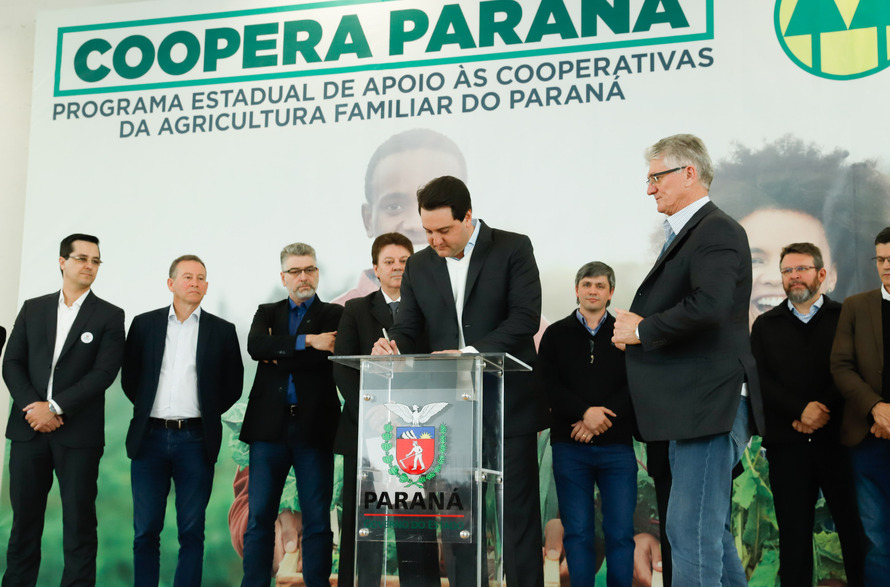
The governor Carlos Massa Ratinho Junior signed this Tuesday (3) decree regulating Law 16.751 / 10, which institutes organic school feeding throughout the state education system of Paraná. The goal is to gradually include organic foods in the diets of students at more than 2,000 state schools, to reach 100% of the meals by 2030. Part of the production will come from family farming.
Currently, 8% of school feeding is organic and 60% comes from family farming. In order for Paraná to be the first state to have 100% organic meals, several strategies will be adopted by the State Government over the next few years. Actions include solutions in the area of animal health, expansion of production and organization of producers in associations and cooperatives.
“The goal is bold, but state support for small farmers working in agro-ecological and organic production will help achieve that result,” said the governor. “Progressively, we will increase the purchase of food without pesticides, especially family farming, improving the quality of our students’ meals,” he said.
“This will also expand the purchase of food from family farms, placing the government as a major driver of family farm growth,” he said. According to him, the state also studies including three meals a day in schools in Paraná. “We have students who go to school hungry, and hungry young people do not learn well,” he said.
WORKING GROUP – The governor also launched on Tuesday the Support Program for Family Farming Cooperatives in Paraná (Coopera Paraná), which seeks to strengthen the state’s micro and small agricultural cooperatives, many of which work with the agroecological system. .
The Secretary of State for Agriculture and Supply has set up a working group of eight institutions to discuss the best strategies for meeting the 100% organic food targets in schools. According to Secretary Norberto Ortigara, the challenge is great, since there is still no organic production, especially of processed foods, to supply the entire school system.
“That’s why we set a target plan by 2030. We have a huge challenge to meet step by step, to reach 100% over the years. But it is also the opportunity to expand agroecological and organic production, which is an appeal that takes shape in the world, ”he said.
LARGEST PRODUCER – According to the Ministry of Agriculture, Livestock and Supply, Paraná is the Brazilian state with the largest number of certified farms in organic agriculture. In addition, it has the Paraná Mais Orgânico program, which helps small organic producers to certify ownership and supports the production marketing processes.
In 2019, Paraná Mais Orgânico reached 1,127 certifications in Paraná rural properties with more than 2,057 visits and 852 case studies. The state government’s investment in the program was R $ 13.5 million. The program is developed in partnership between the General Superintendence of Science, Technology and Higher Education, Paraná Institute of Technology (Tecpar), the seven state universities and the Parana Center for Reference in Agroecology (CPRA).
ATTENDANCE – Deputy Governor Darci Piana attended the ceremony; Chief of Staff Guto Silva; the prosecutor Olympio de Sá Sotto Maior Neto; the superintendent of Science, Technology and Higher Education, Aldo Bona; the presidents of the Far South Regional Development Bank (BRDE), Wilson Bley; from Fomento Paraná, Heraldo Neves; from Tecpar, Jorge Callado; and State Council for Food and Nutrition Security (Consea), Roseli Pittner; and state deputies Hussein Bakri (government leader in the Assembly); Nelson Luersen, Evandro Araújo, Professor Lemos, Elio Rush, Luciana Rafagnin, Emerson Bacil, Anibelli Neto, Goura, Marcel Micheletto.
Learn more about the work of the State Government at:
http://www.facebook.com/governoparana and www.pr.gov.br
Source: Paraná State Government